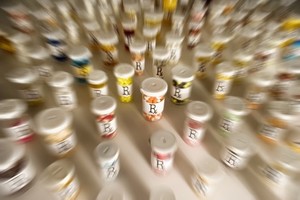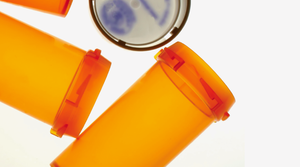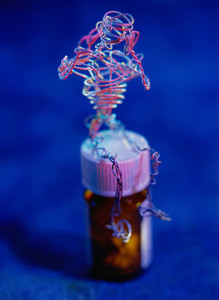A sweeping lawsuit filed on 10 May 2019 by over 40 US states alleges that a number of major drug companies conspired to inflate the prices of generic drugs by as much as 1,000%.
Multi-state lawsuit alleges widespread generic price fixing in the US
Generics/General
|
Posted 17/05/2019
 0
Post your comment
0
Post your comment

According to the lawsuit, Teva, Pfizer, Sandoz, Mylan and 16 other drug manufacturers schemed to artificially manipulate and inflate the prices of over 100 generic drugs. These include lamivudine-zidovudine for HIV, fenofibrate for high cholesterol, budesonide for asthma, amphetamine-dextroamphetamine for attention-deficit/hyperactivity disorder (ADHD), cancer drugs, oral antibiotics, blood thinners, antidepressants and contraceptives. The lawsuit alleges that competitors agreed to co-operate on pricing so that each company could maintain a ‘fair share’ of the market, while raising prices on as many drugs as possible.
‘Rather than enter a particular generic drug market by competing on price in order to gain market share,’ the complaint states, ‘competitors in the generic drug industry would systematically and routinely communicate with one another directly, divvy up customers to create an artificial equilibrium in the market, and then maintain anticompetitively high prices’.
The lawsuit focuses on Teva but describes the conduct as ‘pervasive and industry wide’. One report found that the prices of more than 1,200 generic drugs increased by an average of 448% between July 2013 and July 2014. According to the court document, ‘During a 19-month period beginning in July 2013 and continuing through January 2015, Teva significantly raised prices on approximately 112 different generic drugs ... The size of the price increases varied, but a number of them were well over 1,000%’.
Teva has denied the allegations, saying in a statement that it ‘has not engaged in any conduct that would lead to civil or criminal liability’.
The complaint names senior executives responsible for sales, marketing, pricing and operations, and alleges that the conspirators avoided written records by co-ordinating at meals, parties, golf outings and other networking events.
The lawsuit seeks damages and civil penalties, and demands court action to restore competition to the generic drug market.
This lawsuit is a more extensive version of a similar suit filed in the US District Court in the Eastern District of Pennsylvania in December 2016, which now includes 18 corporate defendants, two individual defendants and 15 generic drugs.
Related articles
US government advances five bills to increase generics competition
Investigation into huge price increases for generics in the US
Permission granted to reproduce for personal and non-commercial use only. All other reproduction, copy or reprinting of all or part of any ‘Content’ found on this website is strictly prohibited without the prior consent of the publisher. Contact the publisher to obtain permission before redistributing.
Copyright – Unless otherwise stated all contents of this website are © 2019 Pro Pharma Communications International. All Rights Reserved.
Research
Japan’s drug shortage crisis: challenges and policy solutions
Saudi FDA drug approvals and GMP inspections: trend analysis
EMA launches European shortages monitoring platform to tackle persistent medicine shortages

Generics/General Posted 03/12/2024
FDA releases one-year progress report for the Generic Drug Cluster

Generics/General Posted 28/10/2022
The best selling biotechnology drugs of 2008: the next biosimilars targets








Post your comment